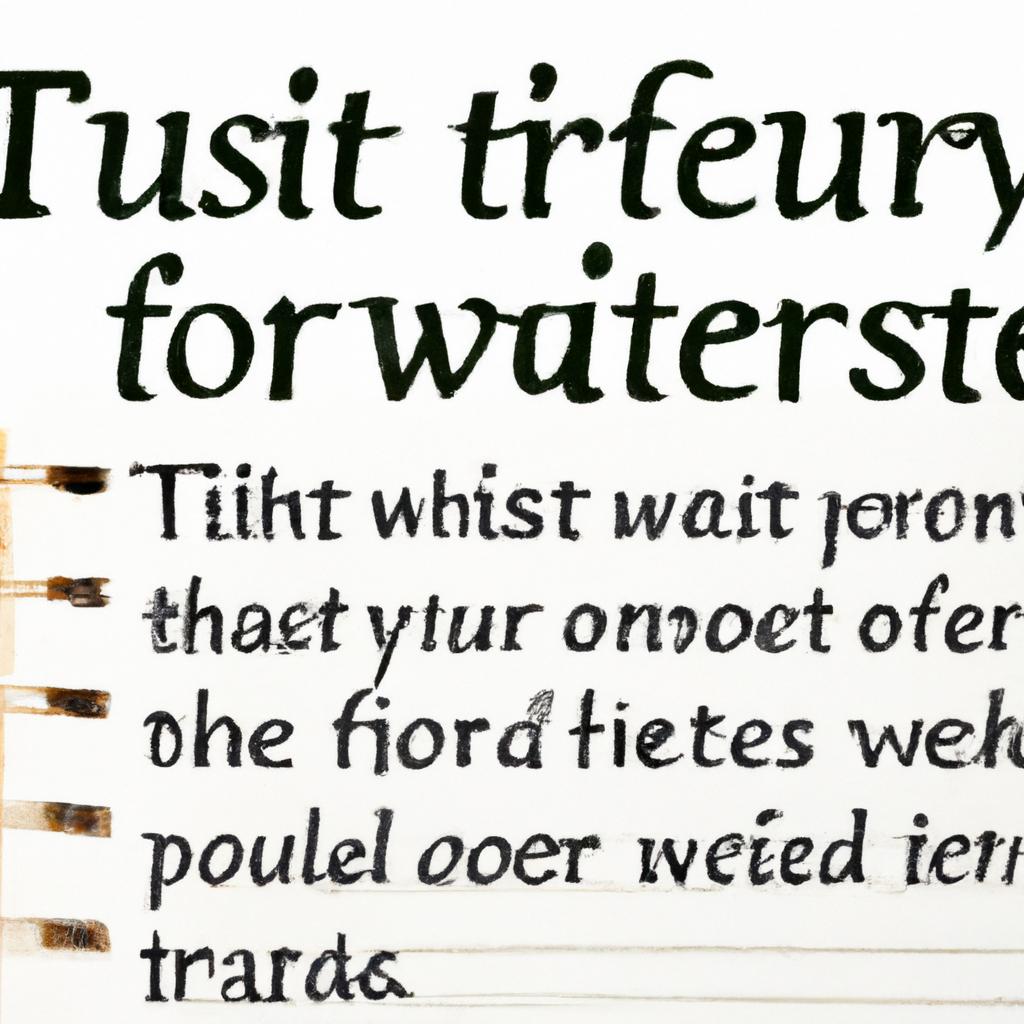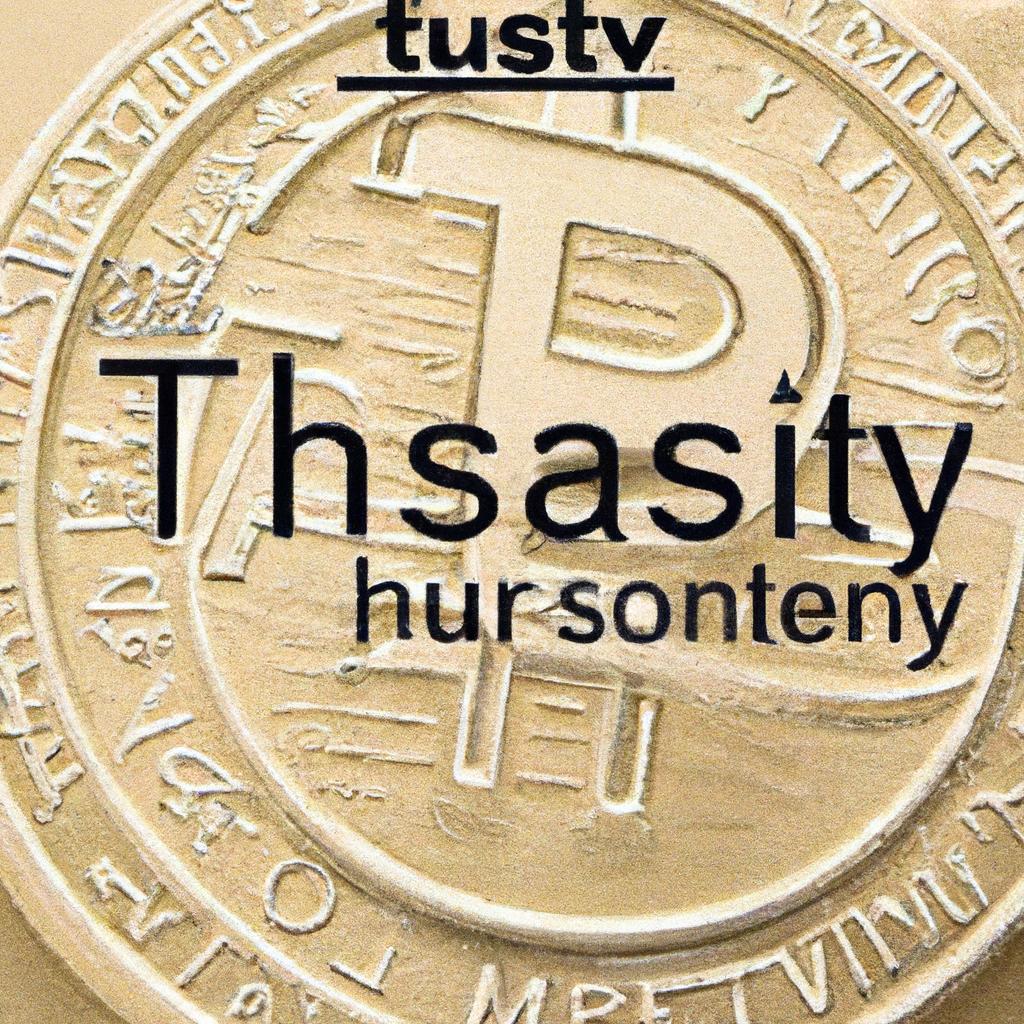As seasoned legal professionals at Morgan Legal Group, nestled in the bustling heart of New York City, we are well-versed in navigating the intricate web of estate planning, probate, and elder law. One question that often arises among individuals seeking to protect their assets and ensure the well-being of their loved ones is whether establishing a trust is truly worth the financial investment. In this article, we will delve into the complexities of trusts, weighing the benefits against the costs to help you make an informed decision regarding this essential aspect of estate planning.
Benefits of Establishing a Trust in Estate Planning
Establishing a trust in estate planning can provide a myriad of benefits that make it a worthwhile investment. One major advantage of setting up a trust is the ability to avoid probate, which can be a lengthy and costly process. By transferring assets to a trust, they can pass directly to beneficiaries without the need for court involvement, saving time and money for your loved ones.
Additionally, trusts offer privacy and protection for your assets. Unlike wills, which become public record upon probate, trusts allow for discreet distribution of assets to beneficiaries. Furthermore, trusts can provide protection from creditors and lawsuits, ensuring that your hard-earned assets are safeguarded for your intended beneficiaries.

Costs Associated with Setting Up and Maintaining a Trust
Creating and maintaining a trust involves various costs that must be considered before deciding whether this estate planning tool is worth the investment. While the initial expenses may seem daunting, the benefits of a trust can outweigh the costs in the long run. Some of the key include:
- Legal Fees: Engaging a knowledgeable attorney to draft the trust document and ensure it complies with state laws is crucial. Legal fees can vary depending on the complexity of the trust and the attorney’s experience.
- Trustee Fees: If you appoint a professional trustee to manage the trust, they will charge a fee for their services. This fee can be a percentage of the trust’s assets or a flat rate, depending on the trustee’s policies.
- Asset Transfer Costs: Transferring assets into the trust may involve fees such as deed recording fees for real estate and account transfer fees for financial accounts.
In addition to the initial costs, ongoing expenses must also be factored into the decision-making process. These maintenance costs can include trustee fees, asset management fees, and any amendments or updates to the trust document. While the costs of setting up and maintaining a trust can add up, the protection and control that a trust provides over your assets and their distribution can make it a worthwhile investment for many individuals and families looking to secure their financial future. Consider consulting with an experienced estate planning attorney to determine the best course of action for your specific needs and financial situation.
Factors to Consider When Deciding If a Trust is Worthwhile
When evaluating whether a trust is worthwhile, there are several key factors to consider. One important factor is the size of your estate. If you have a substantial amount of assets, a trust may be a valuable tool for protecting and distributing your wealth. Additionally, the complexity of your financial situation should be taken into account. Trusts can offer flexibility and control over how your assets are managed and distributed, which may be beneficial if you have unique circumstances or specific wishes for your estate.
Another factor to consider is the potential tax advantages of establishing a trust. Depending on the type of trust you choose, you may be able to minimize estate taxes and protect your assets from creditors. Additionally, trusts can offer privacy and avoid the probate process, potentially saving time and money for your beneficiaries. It is important to consult with an experienced estate planning attorney to determine if a trust aligns with your goals and financial situation. Trusts can be a valuable tool for managing and preserving your wealth, but it is essential to carefully consider all factors before making a decision.
Recommendations for Maximizing the Benefits of a Trust Agreement
To maximize the benefits of a trust agreement, it is crucial to carefully consider the following recommendations:
- Choose the Right Trust Type: Selecting the appropriate trust type based on your unique circumstances and goals is essential. Whether it be a revocable trust, irrevocable trust, charitable trust, or any other variation, each has its own advantages and disadvantages.
- Select a Trustee Wisely: The trustee plays a crucial role in managing the trust assets and ensuring the wishes of the grantor are carried out. It is important to choose a trustee who is trustworthy, competent, and able to fulfill their fiduciary duties effectively.
When considering the question “Is a trust worth the money?”, it ultimately depends on your individual situation and objectives. While establishing a trust may involve some initial expenses, the benefits it can provide in terms of asset protection, avoiding probate, minimizing estate taxes, and ensuring the efficient distribution of assets can often outweigh the costs. By following these recommendations and working with experienced professionals, you can create a trust agreement that maximizes its benefits and meets your long-term estate planning goals effectively.
Q&A
Q: Is a trust worth the money?
A: That is the million-dollar question, pun intended!
Q: What exactly is a trust?
A: A trust is a legal entity that allows a third party, known as a trustee, to hold assets on behalf of beneficiaries.
Q: Why should I consider setting up a trust?
A: Trusts offer a variety of benefits, such as avoiding probate, providing for minor children or disabled family members, and protecting assets from creditors.
Q: How much does it cost to set up a trust?
A: The cost of setting up a trust can vary depending on the complexity of the trust and the fees charged by the attorney or financial planner assisting with the process.
Q: Are there ongoing costs associated with maintaining a trust?
A: Yes, there may be ongoing costs, such as trustee fees, investment management fees, and administrative expenses.
Q: Will a trust save me money in the long run?
A: It depends on your individual circumstances and financial goals. In some cases, the upfront cost of setting up a trust may be outweighed by the long-term benefits it provides in terms of asset protection and estate planning.
Q: How can I determine if a trust is worth the money for me?
A: It is recommended to consult with a qualified attorney or financial planner who can assess your specific situation and help you weigh the costs and benefits of setting up a trust.
Key Takeaways
In conclusion, the decision to establish a trust ultimately comes down to individual circumstances and goals. While trusts can offer a variety of benefits, such as asset protection and estate planning, they may not be necessary for everyone. It’s important to carefully consider your financial situation and consult with professionals to determine if a trust is worth the cost. Ultimately, the answer to whether a trust is worth the money will vary for each individual.
 In the world of estate planning and financial management, trusts are often touted as a valuable tool for preserving wealth and safeguarding assets for future generations. But with the cost and complexity involved in setting up a trust, many people wonder if it is worth the investment. In this article, we will take a closer look at trusts and explore whether they are truly worth the money.
In the world of estate planning and financial management, trusts are often touted as a valuable tool for preserving wealth and safeguarding assets for future generations. But with the cost and complexity involved in setting up a trust, many people wonder if it is worth the investment. In this article, we will take a closer look at trusts and explore whether they are truly worth the money.
What is a trust?
A trust is a legal arrangement where a trustee holds assets on behalf of a beneficiary. The trustee has the responsibility to manage and distribute the assets according to the terms set out in the trust document. Trusts are often established as part of an estate plan or for managing assets for minors or individuals with special needs.
Types of trusts
There are various types of trusts, each with its own purpose and features. The most common types include:
1. Revocable trust – This type of trust allows the grantor (the person creating the trust) to make changes or revoke the trust during their lifetime. It is often used to avoid probate and provide flexibility in managing assets.
2. Irrevocable trust – Unlike a revocable trust, an irrevocable trust cannot be changed or revoked once it is established. It is commonly used for tax planning and asset protection.
3. Testamentary trust – This is a trust created through a will and only takes effect upon the grantor’s death. It is often used to provide for minor children or individuals with special needs.
Now that we have a better understanding of what a trust is and the different types, let’s explore the potential benefits and drawbacks of setting up a trust.
Benefits of a trust
1. Asset protection – One of the primary reasons individuals opt for a trust is to protect their assets from creditors, lawsuits, or bankruptcy. With an irrevocable trust, assets are considered legally owned by the trust, not the grantor, making them less vulnerable to creditors.
2. Probate avoidance – Trusts are not subject to the probate process, which can be lengthy and costly. By avoiding probate, assets held in trust can be distributed to beneficiaries more quickly and efficiently.
3. Flexibility – As mentioned earlier, revocable trusts offer flexibility as the grantor can make changes or revoke the trust during their lifetime. This allows for adjustments to be made as circumstances change, ensuring the trust aligns with the grantor’s wishes.
4. Tax benefits – Depending on the type of trust, there may be potential tax benefits. For example, an irrevocable trust can help reduce estate taxes by removing assets from the grantor’s taxable estate.
Drawbacks of a trust
1. Cost – Setting up a trust can be a complex and expensive process, involving legal fees and ongoing administrative expenses. The cost may outweigh the benefits for individuals with smaller estates.
2. Loss of control – With an irrevocable trust, the grantor gives up control of the assets, and they cannot be used for personal benefit. This can be a difficult decision for some individuals as it means giving up ownership and control of their assets.
3. Complex administration – Trusts require ongoing management and administration, which can be overwhelming for some beneficiaries. This task usually falls on the trustee, who may need to get assistance from financial professionals, resulting in additional fees.
Is a trust worth the money?
The answer to this question ultimately depends on your personal situation and goals. For individuals with larger estates, a trust can be a valuable tool for minimizing taxes and protecting assets for future generations. However, for those with smaller estates, the cost and complexity of setting up and managing a trust may outweigh the benefits.
Practical tips for setting up a trust
1. Evaluate your goals – Before making the decision to set up a trust, it is crucial to evaluate your financial goals and determine if a trust aligns with them.
2. Seek professional advice – Setting up a trust requires legal and financial expertise. Be sure to seek advice from professionals with experience in establishing trusts to ensure your wishes are properly executed.
3. Choose a trustworthy trustee – When selecting a trustee, consider someone who is financially responsible, trustworthy, and capable of handling the obligations associated with managing a trust.
Case study: The benefits of a trust
Let’s look at a real-life example to understand the potential benefits of a trust. John and Mary have a substantial estate valued at $10 million. They have three children and want to ensure their assets are protected and distributed according to their wishes. Instead of leaving their assets outright to their children, they establish an irrevocable trust.
In this case, by removing the assets from their taxable estate, John and Mary can potentially save hundreds of thousands of dollars in estate taxes. The trust also protects the assets from potential creditors or lawsuits, ensuring their children receive their inheritance intact. The trust also allows them to specify the terms for distributing the assets, providing peace of mind that their wishes will be carried out.
First-hand experience: The importance of proper trust administration
Proper trust administration is crucial to the success of a trust. A poorly managed trust can lead to financial losses, legal disputes, and strained relationships between beneficiaries and trustees. As a beneficiary of a trust, I have personally experienced the difference proper administration makes. With regular updates and meetings, my trustee has kept me informed about the trust and provided me with the necessary support to manage my inheritance properly.
Conclusion
In conclusion, trusts can be a valuable tool for protecting assets, minimizing taxes, and ensuring assets are distributed according to your wishes. However, they come with a cost and require careful consideration before making the decision to set one up. By seeking professional advice and evaluating your goals, you can determine if a trust is a worthy investment for your situation.












